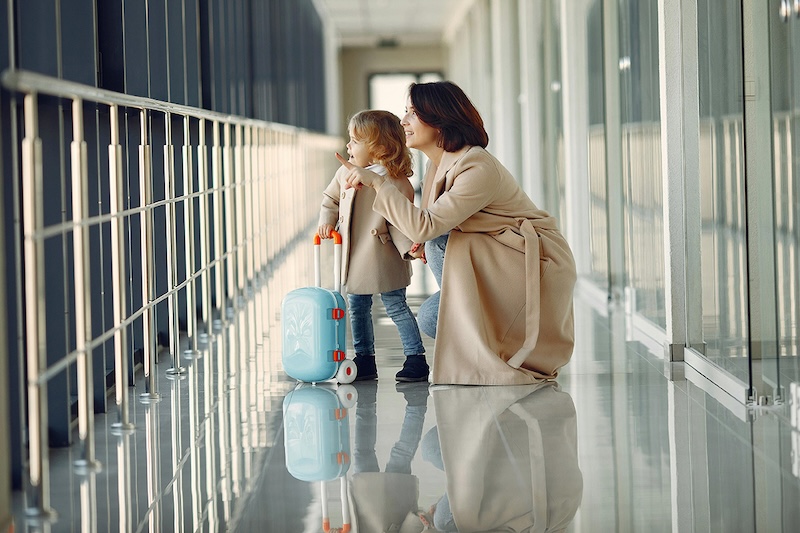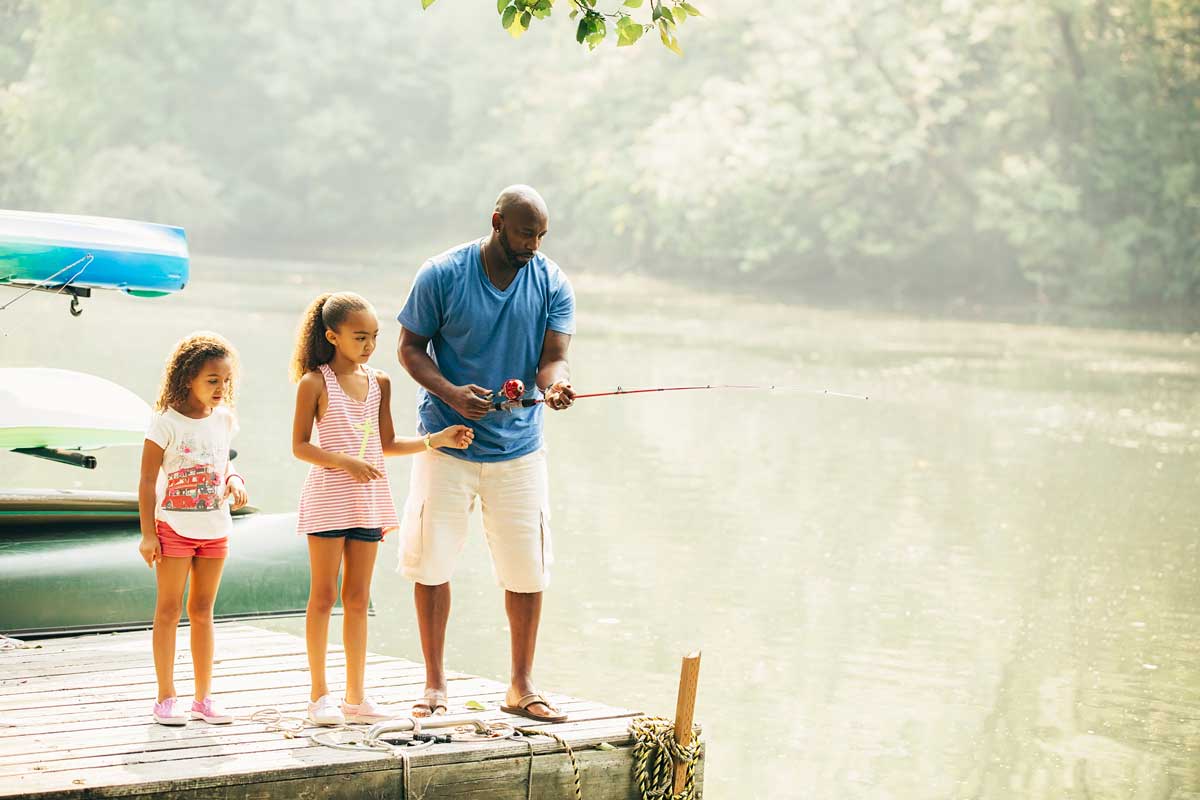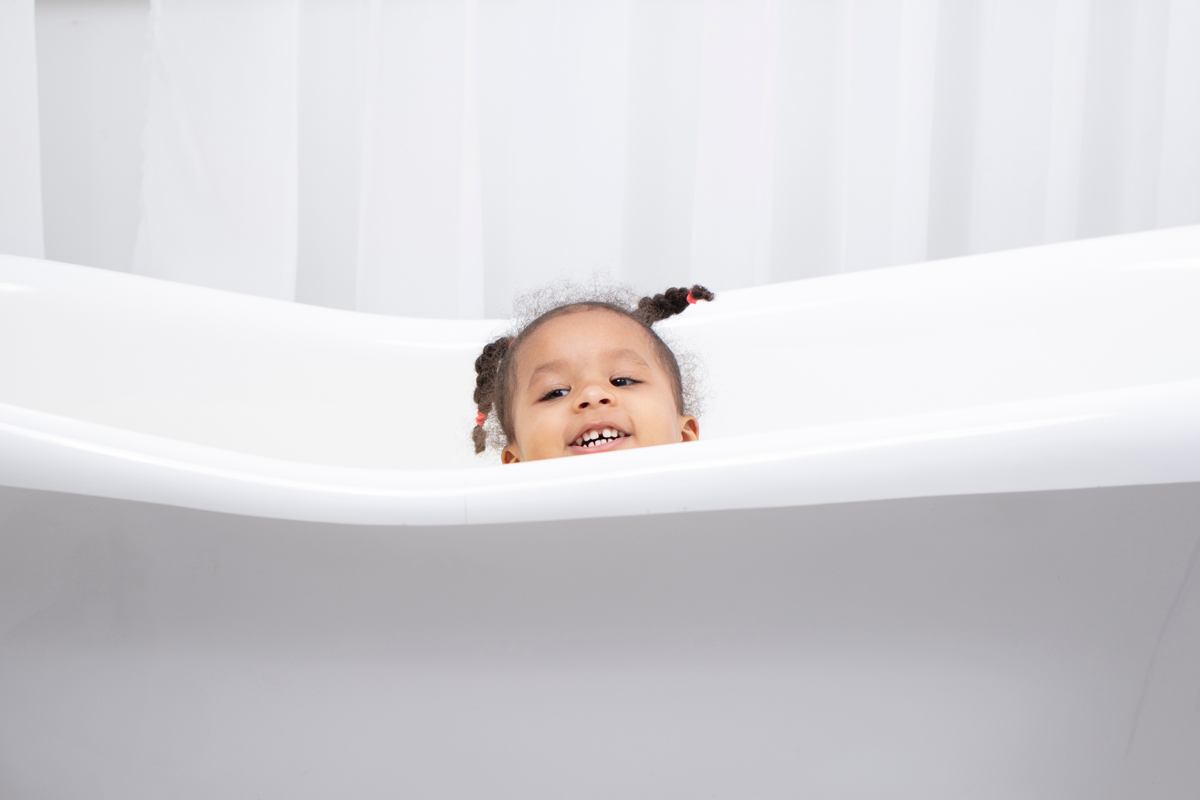For many people — and I include myself in this — the experience of travel is one of the most significant changes post-children. Jesse and I traveled a lot on our own before kids. I’m not a very relaxed traveler (or person), but still, vacation pre-children usually managed to be somewhat chill and, more than that, somewhat flexible.
Traveling with kids is just different. It’s a trip, but often less of a vacation. It can be exhausting and occasionally nerve-racking. Sometimes things happen that you feel could not possibly have been predicted.
Case in point: When Penelope was four months old, we went to Spain with my entire family. In retrospect, this was ill-advised for a number of reasons (to give my spouse credit, he did oppose the trip). I was nursing Penelope, and pumping, and brought along the pump so I could pump milk and be away from her occasionally for, like, a walk. What I did not understand was that if you want to use a breast pump in Europe (at least in 2011), you need not only a plug adapter to change the plug shape but also a plug converter to change the voltage. Otherwise, when you plug your breast pump in and turn it on, it will go “pump pump pump” and then die and start to smoke. Which is what happened to me. It made for a long week. After that, we got multiple converters.

On the other hand! It’s not all negative, by a long shot. Travel with my kids, especially as they are a bit older, is a joy. And many of my happiest memories from childhood are from travel, even from travel mishaps. My family still talks about the time Stephen and I vomited on ourselves in the car while baby John wailed because he had roseola. My parents pulled over and mom threw all of our clothes away. I’m sure it was a bad afternoon for her, but it got a lot of family mileage.
What I am saying is: it’s a balance. Travel with kids can be great, but it deserves more careful thought and planning than without them.
Below, answers to some common questions about traveling with children and a brief discussion of risks. Then, some thoughts on planning.
What are the overall risks of traveling with kids?
The risks of traveling are largely about disruptions in routine, lack of sleep, and illness. A reasonable way to structure any question about travel, then, is to ask which of these apply to your situation and how important they are.
For older kids, illness is a part of life, but obviously it’s not something we welcome. Disruption — it depends on the trip. A weeklong trip to grandma’s that’s an hour’s drive away may be less disruptive than a cross-country flight to visit four cities in five days.
For infants, things are a little different.
When is it safe to travel with a baby?
A very young infant has little routine and will generally sleep (whether the way you want them to or not, they do sleep). The big worry with infants is illness. I’ve written more extensively about this before. Travel means, on average, more illness exposure. Airplanes, crowded spaces, family members, etc., etc. Below a certain age — typically 60 days and as many as 90 — there is a greater risk of bacterial infection, and the risk that an illness becomes serious is higher. Reflecting this greater risk, the medical system has a larger response.
For a four-week-old baby presenting with a fever — any fever, even if you are quite confident it’s a viral infection — hospitals will do a spinal tap to rule out bacterial infection. This is safe and important for them to do, but it’s also scary and traumatic for parents.
If possible, it is best to wait to travel with a baby until you are out of this window, typically after eight weeks or so.
A variant on this question is: Is it better to drive with a baby than fly? The fact is that it’s the people you are seeing who are likely to be the biggest risks, not so much the airplane, especially with a small baby who isn’t going to be touching and licking things. So if you do need to travel, flying isn’t obviously worse.
Are there specific risks to international travel?
The two possible additional considerations with international travel are (1) particular illnesses and (2) jet lag.
On the illness front: For some set of places you might travel, you’ll need additional vaccinations for diseases that we do not typically get in the U.S. Depending on where you’re going, you want to pay close attention here. In recent years, measles rates have increased both in the U.S. and abroad. If you have a child under 1, your doctor may recommend moving the measles vaccine earlier if you will be traveling to a country with recent measles cases or to an area of the U.S. with a current measles outbreak.
Jet lag: This relates to the issue of sleep disruption mentioned above. Kids actually tend to adapt better than adults to a new time zone, because they’re more responsive to light. But jet lag can mess with sleep on both ends. Certainly some parents report it’s very difficult to get back to a good sleep schedule post-trip. One thing that can help is melatonin. There’s good evidence that it improves the jet lag experience.
Advice for traveling with children
Taking all the above together, by and large, it is safe to travel with children. But should you? Maybe! It can be great; it can be exhausting and stressful. It’s usually all of those things. My advice is that it will be better with just two, relatively simple, pieces of advanced planning.
Be clear on the purpose of the trip.
Are you taking this trip so your kids can see their cousins or grandparents? Is the goal to expose them to another culture? Is the goal to bond as a family? Have you and your partner always wanted to enjoy Paris, and now is the chance?
There are two reasons this is important. First, you can use it as a reminder in a tough moment. The goal of the trip is rarely to have everything go predictably and smoothly all the time. When it doesn’t, it’s useful to remind yourself, hey, our goal here is to hang out with family — and the kids are doing that, even if you’re spending the day on the phone with the airline about why your luggage is in another city.
Second: Sometimes if you put it like this, it will reveal that you shouldn’t go, or not in that configuration. If your goal is to enjoy a romantic trip to Paris, you will probably not get to have that with your kids. It might be better to leave them behind.
Plan it out.
I am generally a big fan, in the day-to-day, of having a schedule. Often, before kids, vacation is a chance to kind of move away from that — to have flexibility. Take a long lunch. Have a nap whenever. This can be more challenging with kids, and now you may be able to get more relaxed if you plan out in advance how the day is going to look
This planning is also an opportunity to build in solo adult time, either together or separately, if you’re traveling with a partner.
The bottom line
- The main risks with travel are largely about disruptions in routine, lack of sleep, and illness.
- If possible, it is best to wait to travel with a baby until they are older than eight weeks.
- When planning a trip, be clear about the purpose of the trip and make sure to plan your days in advance. This will help you manage expectations and enjoy yourself.





















Log in
In May we traveled to Italy with our 2.75 year old and it went surprisingly well. What worked for us was planning to not move around too much (we went to 3 places over the 2 weeks, pre kids I would have gone to many more places) and having reasonable expectations for what could achieve. And opposite of what Emily recommends, I found it better to not plan each day out too much. We had several days in each place and a general idea of things we wanted to do, but we didn’t know what our daughter’s sleep/nap schedule was going to be until we got there, so we figured out our daily plans one or two days in advance. All in all it was great, even if she ate nothing but pasta, pizza, Nutella, and chocolate gelato the whole time…
We’ve taken our 3.5-year-old internationally twice and cross country at least 2x/year starting when he was about 9 months old. In my experience, traveling with a young child is pure joy and pure exhaustion. We always get back and say we need a vacation from our vacation… but it’s worth it.
This is entirely anecdotal, but we have always found that following a big trip — especially the international ones — he seems to have a massive skill leap of some kind. After one trip, his language improved so noticeably that even his daycare teacher said something about it. Another time, he suddenly made a big potty training leap that we had been working on for months. Would love to know if there is any data on this… could the exposure to a new environment and/or shakeup in routine lead to a massive uptick in neural connections in such a noticeable way? Is it just the being together with him 24/7 for a week? We’re headed overseas again in a few weeks and can’t wait to see what magic happens this time.
To add to your anecdotal evidence, this just happened with my son. After a three week trip to visit grandparents in Turkey, his somewhat delayed gross motor skills suddenly almost caught up! It’s been incredible and his PT definitely noticed the difference. She says that some of what was keeping him back was likely due to some lack of confidence and that something about the trip just gave him that boost.
Report back! Would love to know if you noticed anything new. We’re in the same boat and stories like these are great for encouraging us to keep exploring the world with kids.
Oh my oh my goodness what happened with your brother and the rest of that flight??